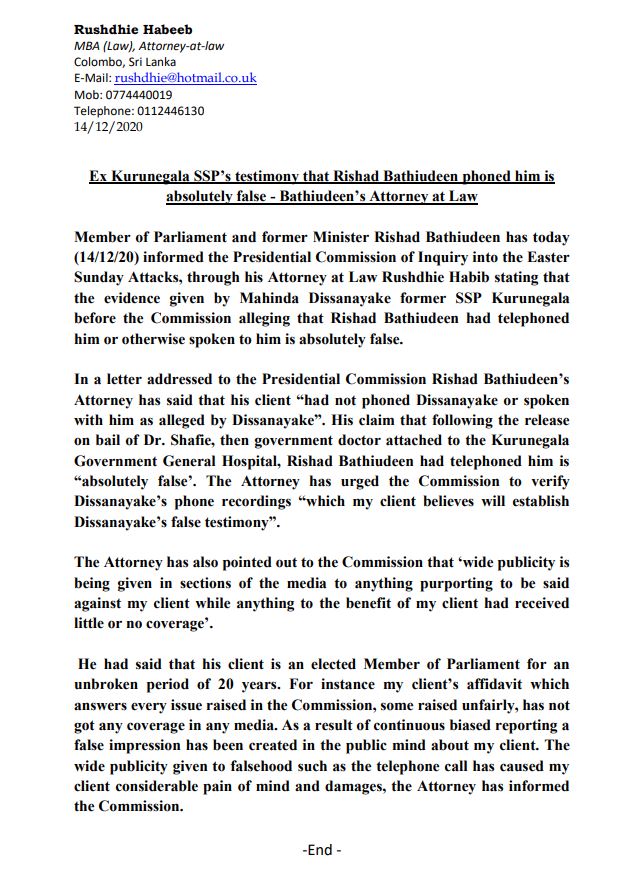News

US terminates LKR 89 billion MCC Compact with Sri Lanka
The Millennium Challenge Corporation (MCC) board has decided to discontinue the proposed LKR 89 billion MCC Development Compact to Sri Lanka, the US embassy in Colombo announced.
"On December 15, the Millennium Challenge Corporation (MCC) board decided to discontinue the proposed Rs. 89 billion MCC development assistance grant to Sri Lanka due to lack of partner country engagement," the US Embassy said in a statement.
They said that the LKR 89 billion approved for Sri Lanka will be made available to other eligible partner countries in need of grant funding to pursue their economic development priorities, reduce poverty, and grow their economies.
"Country ownership, transparency, and accountability for grant results are fundamental to MCC’s development model. MCC has successfully partnered with nearly 30 countries worldwide on 38 grant agreements, totaling nearly USD 13.5 billion. These grants have lifted millions of people from poverty by catalyzing local and domestic investment," the embassy said. adding that the United States remains a friend and partner to Sri Lanka and will continue to assist Sri Lanka in responding to COVID and building its economy.
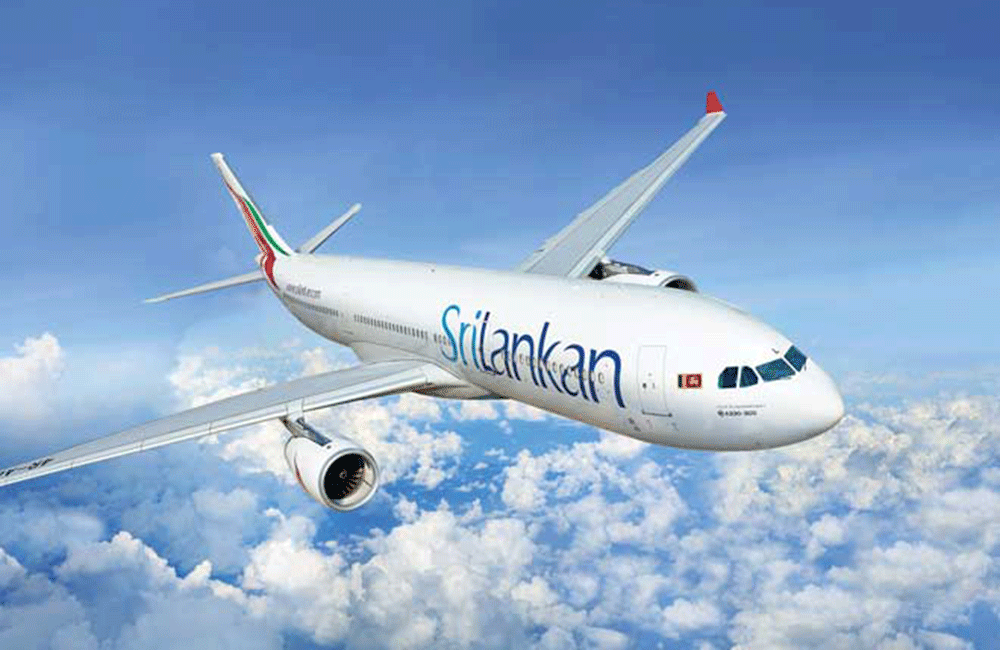
SriLankan Airlines increases flights to Singapore; adds Malaysia to destination list
The National Carrier of Sri Lanka and a member of the oneworld Alliance, SriLankan Airlines is set to increase the frequency of passenger flights from Colombo to Singapore from once a week to thrice a week, commencing 18 December, Airline officials said. In addition to this, SriLankan will also operate a weekly service between Kuala Lumpur and Colombo every Friday.
These flights are operated subject to COVID-19 entry restrictions and border closures imposed by the respective countries.
Passengers are kindly reminded to be aware of these travel conditions before booking flights with SriLankan Airlines.
The Airline prioritises the safety and wellbeing of its passengers through a range of additional measures to offer Covid-19 preventive services at the airport and onboard.
Despite the global lockdown, SriLankan Airlines has been operating these routes specifically to cater to the demand for cargo capacity with its fleet of passenger and freighter aircraft.
Passengers intending to travel with SriLankan Airlines to these destinations and beyond could book their tickets from the airline’s ticket offices in Colombo, Galle and Kandy, or through their preferred travel agent.
More information could be obtained from SriLankan Airlines Global Contact Centre on +94117771979 or visit www.srilankan.com
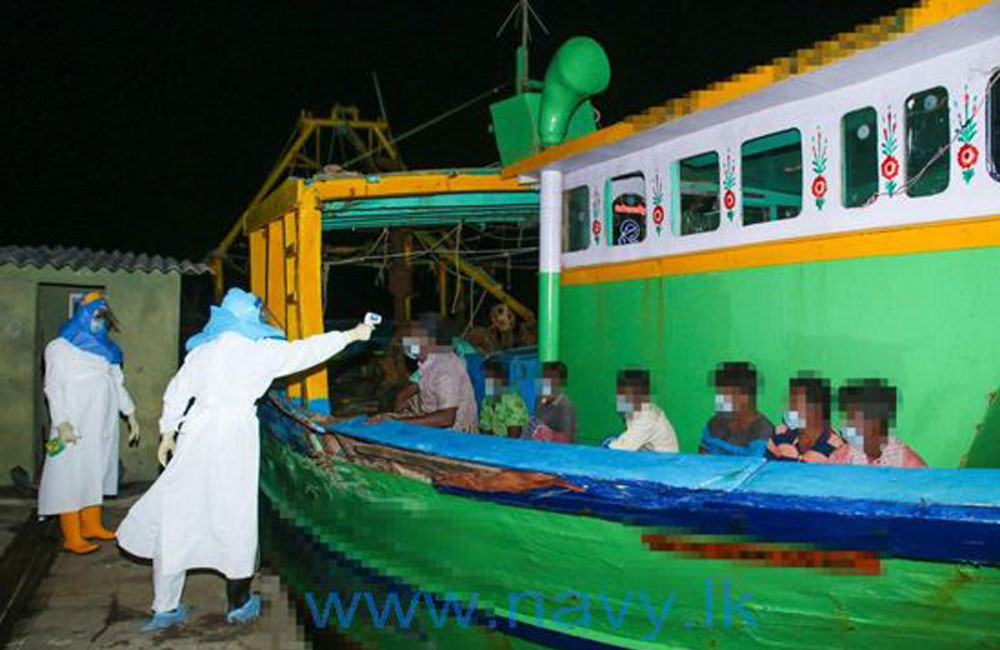
Navy apprehends 36 Indian fishermen along with 05 trawlers for poaching in Sri Lankan waters
Special operations carried out by the Sri Lanka Navy and Coast Guard in several sea areas of the island on Tuesday (15) have led to the apprehension of 36 Indian nationals along with 05 fishing trawlers and fishing accessories, for poaching in Sri Lankan waters. Although operations to prevent poaching by foreign fishermen in Sri Lankan waters have been restricted since March this year due to COVID-19 concerns, the Navy resumed its raids on poaching, considering the impact of this wanton act on the livelihood of local fishing community and to protect the fishing resource of the country, as a result of the surge in the arrival of foreign fishing trawlers in Sri Lankan waters.
Accordingly, Northern Naval Command, during a special operation in the sea area off the Delft Island had intercepted 03 Indian fishing trawlers and held 22 Indian nationals and those vessels for poaching in the island's waters.
Around Sri Lanka's territorial waters in the area north of Mannar and west of Kudiramalei Point, 14 more Indian nationals and 02 fishing trawlers were held by the North Central Naval Command and Northwestern Naval Command respectively.
"All these search operations were conducted adhering to the COVID-19 preventive guidelines and further investigations are currently underway with regard to the 36 accused and 05 fishing trawlers held by the Navy," a statement by the NAvy said.
Meanwhile, arrangements are being made to direct the apprehended Indian nationals for 14 days of quarantine. Sri Lanka Navy will continue to undertake similar operations in view of preventing illegal fishing practices and other nefarious activities to protect the country's marine resources, the Navy affirmed.
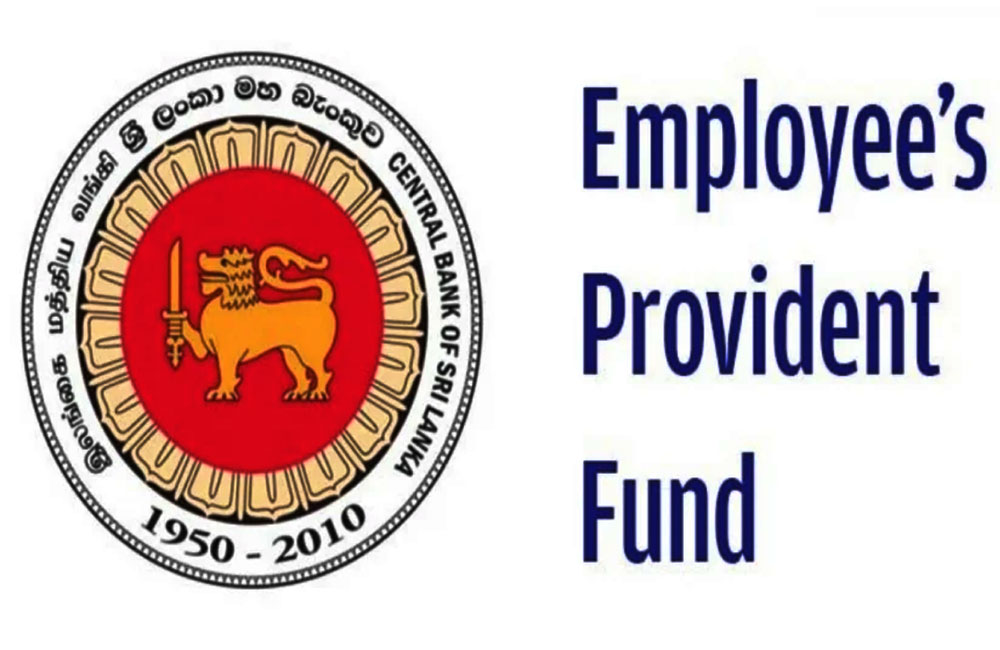
Government's move to amend EPF Act comes under a barrage of protests
The Ceylon Federation of Labour (CFL) has warned against the government’s move to amend the Employees Provident Fund (EPF) Act as part of raising the retirement age as proposed by the 2021 Budget. CFL General Secretary T.M.R. Rasseedin, in a letter to Labour Minister Nimal Siripala de Silva, has alleged that it appears that the Budget proposal is to be implemented by amending Section 9(1) of the EPF Act, preventing members from withdrawing monies in their own individual accounts before the new retiring age of 60 years.
While the CFL welcomes the government's intention of raising the retirement age of employees in the private sector based on present life expectancy of people, it was disturbed by the move to amend Section 9(1) of EPF Act.
It expressed the belief that this proposal has been made with the intention of curtailing withdrawals from the EPF during the next five years so that the cash strapped government could use the accumulated funds for its own purposes.
"This strategy can threaten the very viability of the EPF," CFL said in its letter, the copies of which had been sent to Secretaries of the Ministry of Labour and Ministry of Finance, EPF Superintendent, Commissioner-General of Labour and members of the National Labour Advisory Council.
Previously, a national retirement age and a universal old age pension to go with it has been recognised by trade unions as an acceptable strategy to raise the retirement age of workers. The present proposal, if implemented, would seriously affect employees, especially women, who have already made plans to retire in the next few years.
The CFL said in its letter that any contemplated action in this regard should not be prejudicial to the interests of members of the EPF who presently enjoy the following benefits regarding withdrawal of their balances under the EPF Act.
The union urges that existing employees be exempted from the proposed amendment making it only applicable to new employees or at least provide members with an option to retire and withdraw their EPF balances at their presently recognised retirement age for the next five years.

Govt. likely to auction seized luxury vehicles
At least 49 vehicles among 300 luxury vehicles worth LKR 2 billion seized by the Customs Department which were imported before and during the import ban, are likely to be auctioned, official sources said. These include vehicles that have been imported without proper documentation and in some cases forged papers, the sources said.
Vehicle importers and traders have been urging the authorities to release the vehicles even after a confiscation fine is imposed.
These vehicles seized by Customs consisting of BMWs and Mercedes Benz had been shipped after April and May 2020 with duty-free permits by several public officials and individuals through local dealers, the sources revealed.
A top level official investigation revealed that at least 49 vehicles had been imported without opening LCs and the balance had been ordered on credit terms from the manufacturers by permit holders without causing an immediate impact to foreign reserves.
Accordingly, the vehicles which were brought down to the country without LCs and using forged or altered documents will be confiscated and sold in a public auction while the balance number of vehicles will be released to importers on a case by case basis, official sources said.
"The offenders will be penalised under the Custom Ordinance in accordance with the top level official committee recommendations," one source said.
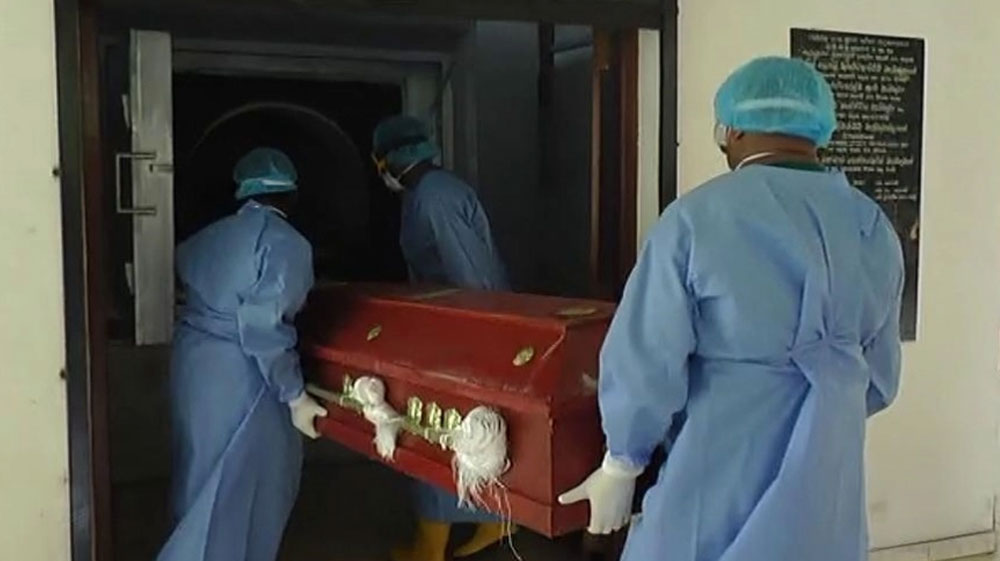
Anger over forced cremations of COVID-19 victims of Sri Lanka
Muslim families in Sri Lanka are refusing to collect the bodies of their relatives who died of Covid-19, in protest against the government enforcing cremations. A government health officer in the capital city of Colombo told The Straits Times that in the past 10 days, 19 bodies have been left unclaimed in the Colombo morgue as Muslim families demand the right to bury them as per Islamic rites.
The Sri Lankan government issued a gazette notification in April mandating cremation as the only method of disposal for all Covid-19-related deaths. The new rule set off concerns among the country's Muslims, who make up 10 per cent of Sri Lanka's 21 million population.
When Mr Mohamed's 70-year-old father died in his sleep on Nov 29 in their home in the capital city of Colombo, the 28-year-old ribbon trader said prayers with his mother and rushed his father's body to the hospital. Tests of the dead man found him positive for the coronavirus.
For the past 10 days, as the family has refused to pay for the coffin and cremation, the body remains in the morgue.
Now in an army-run quarantine centre in the eastern town of Trincomalee, Mr Mohamed, who gave only his first name fearing repercussions, said: "It pains me to leave my father's body like this, but what can I do? In Islam, we believe that a person goes to hell if not properly buried.
"My father's nickname in our area was Poonai (pussycat) because he was so soft-spoken, worked quietly and avoided conflict. I cannot imagine his body in flames," he added.
The World Health Organisation's March guidelines say victims of coronavirus "can be buried or cremated". But the Sri Lankan government's chief epidemiologist Dr Sugath Samaraweera told the media that an expert committee warned them about the island's high water table, and that burials could contaminate ground water.
Twelve petitions from civil society and Muslim and Catholic families challenged the cremation rule in the Supreme Court, demanding evidence for the claims about burials contaminating groundwater. Members of the families involved said they were traumatised by the government denying them their religious burial rights.
On Dec 1, the court dismissed all the petitions.
"Why is Sri Lanka the only country in the world to force us to cremate the dead?" asked one of the petitioners, shipping manager Fayaz Joonus, 48.
His father BHM Joonus had died on April 1, a day after the cremation notification was issued. When health authorities found the 73-year-old positive for Covid-19, the family had to buy a coffin for cremation and pay the expenses.
"It was a painful and sad experience. We Muslims consider cremation a violation of the human body," said Mr Fayas.
His father was the third Sri Lankan and the second Muslim to die of Covid-19. Since then, the country has had almost 30,000 cases of Covid-19 and 142 have died, including at least 55 Muslims.
The authorities require even those suspected of having died of Covid-19 to be cremated. (The Straits Times)
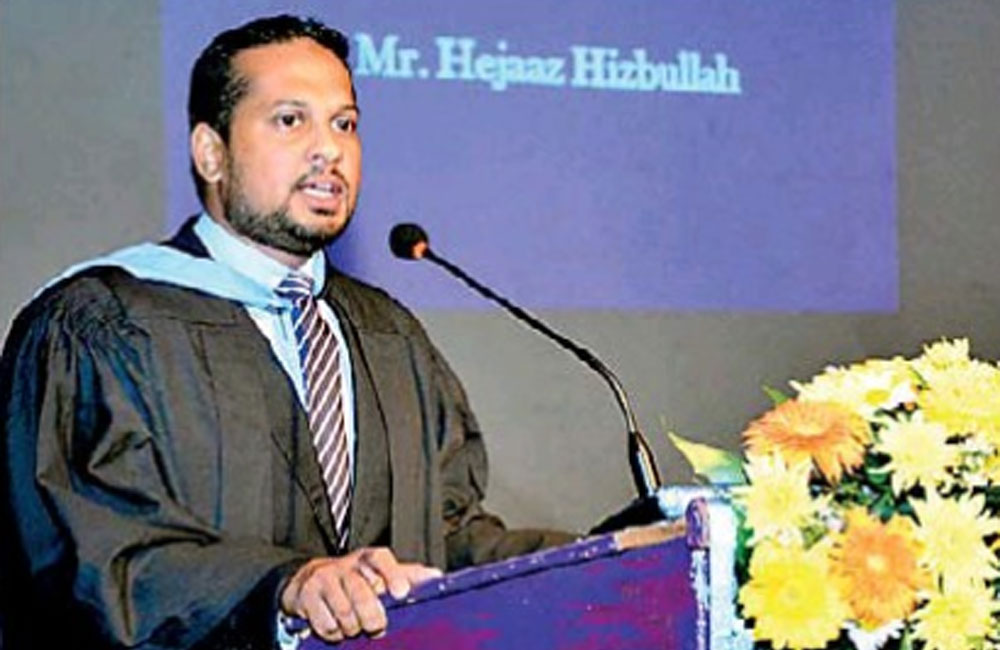
Detained lawyer Hejaaz Hizbullah granted access to attorneys
The Attorney General informed the Court of Appeal on Tuesday (15) that arrangements can be made for lawyers representing Hejaaz Hizbullah, who is currently being held in connection with the Easter Sunday terror attacks, to meet their client. Accordingly, Hizbullah will be meeting up with his legal counsels at 2.30 pm today (16).
The petition filed by attorney-at-law Chalana Perera, seeking a court order on the Director of CID to grant permission for Hizbullah to access his lawyers, was taken up before Appeals Court Justices Priyantha Fernando and Sobitha Rajakaruna yesterday morning.
Following the announcement of the Attorney General’s decision, the legal matter was concluded by the Appeals Court bench.
The petition in question alleged that the Criminal Investigations Department (CID) has not granted access for Hizbullah’s lawyers to meet him since September, however, when the petition was heard yesterday, the Attorney General denied the accusations.
Meanwhile, Appeals Court President Arjuna Obeysekara recused himself from considering the petition on December 10, citing personal reasons.
The human rights lawyer has been held at the CID headquarters in Colombo since his arrest on 14 April 2020, with restricted access to his lawyers, family and wife.
Hizbullah was arrested on charges of allegedly “aiding and abetting” one of the bombers involved in the 2019 Easter Sunday terror attacks.
Many, including the Euroipean Union , Amenesty International and nearly 150 Sri Lankan lawyers have raised concerns over Hejaaz Hizbullah’s detention under the Prevention of Terrorism Act (PTA) without sufficient evidence.
In October, the case filed against Hizbullah at the Fort Magistrate’s Court was rescheduled to February 21 next year due to the pandemic situation in the country.
Related News: On Hejaaz Hizbullah: The latest victim of Sri Lanka’s draconian Prevention of Terrorism Act
On Hejaaz Hizbullah: The latest victim of Sri Lanka’s draconian Prevention of Terrorism Act
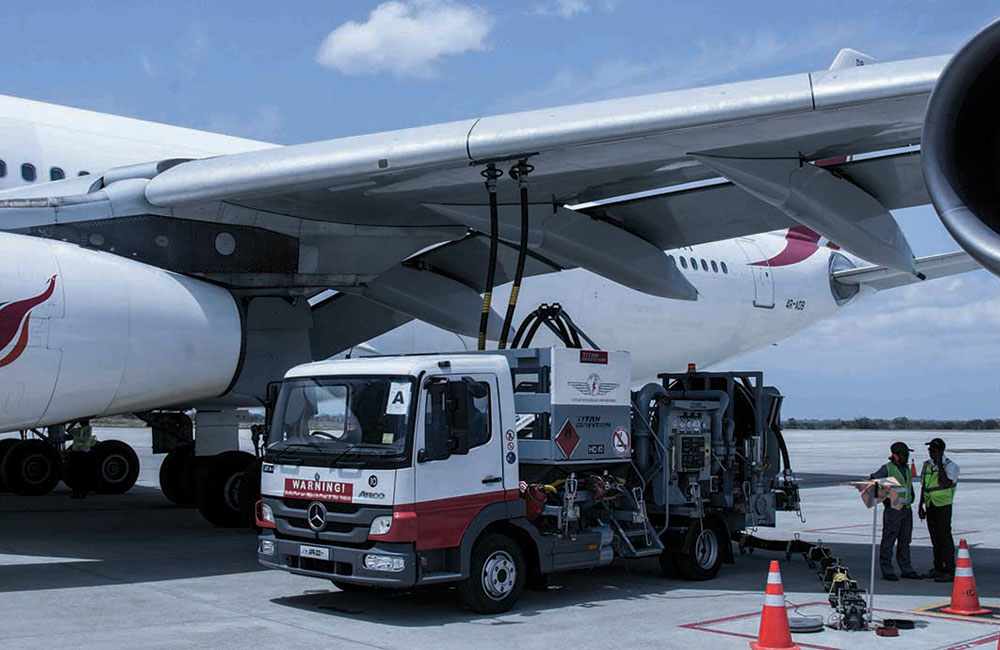
CPC to raise jet fuel imports to meet soaring local demand
Sri Lanka’s state owned Ceylon Petroleum Corporation (CPC) is devising plans to increase its jet fuel imports in the next two years anticipating a rise in domestic demand of the aviation sector in the next two years, official procurement plan revealed. CPC will increase jet fuel imports by 38.33% to 593440 metric tons next year and in addition 7.4% more to 635820 metric tons in 2022, official data showed.
According to official documents, CPC has no alternative other than to import refined petroleum products to meet the local demand as the production at Sapugaskanda oil refinery is insufficient to tackle the demand, procurement plans unveiled.
The government has to expedite the procurement process of fuel imports as the CPC refinery has to shut down for maintenance once in every two years.
The present production out put at the refinery is around 40,000 b/d which is sufficient to meet 25% to 30% of the domestic demand and the balance will have to be imported, official sources said.
The government has already given the green light for the CPC to resume the long-planned project to expand crude oil processing capacity of its refinery at Sapugaskanda.
The CPC's proposal has received Cabinet approval recently to devise a new feasibility study to determine the scope, technical, operational, and financial feasibility of the planned 100,000-b/d expansion.
It will also focus on several alternative proposals to enhance the refinery’s existing capacity, according to Government Information Department of Government Information.
The sales volume of CPC declined by almost 20% to 3,367 million litres for the first eight months of 2020, compared to 4,211 million litres in the same period of 2019, Treasury reports revealed.
Accordingly, CPC revenue dropped almost by LKR 96 billion while the cost of sales declined by 22% to LKR 311 billion.
In fact, as the CPC’s overall performance is highly linked with the exchange rate fluctuations, coupled with the exchange rate variations, its’ overall loss for the first eight months of 2020 reached LKR 4.4 billion, a report revealed.
As the average crude oil price remained below USD 43 per barrel, the total import cost of the CPC during the first eight months of 2020 declined to around USD 1,126 million it added.
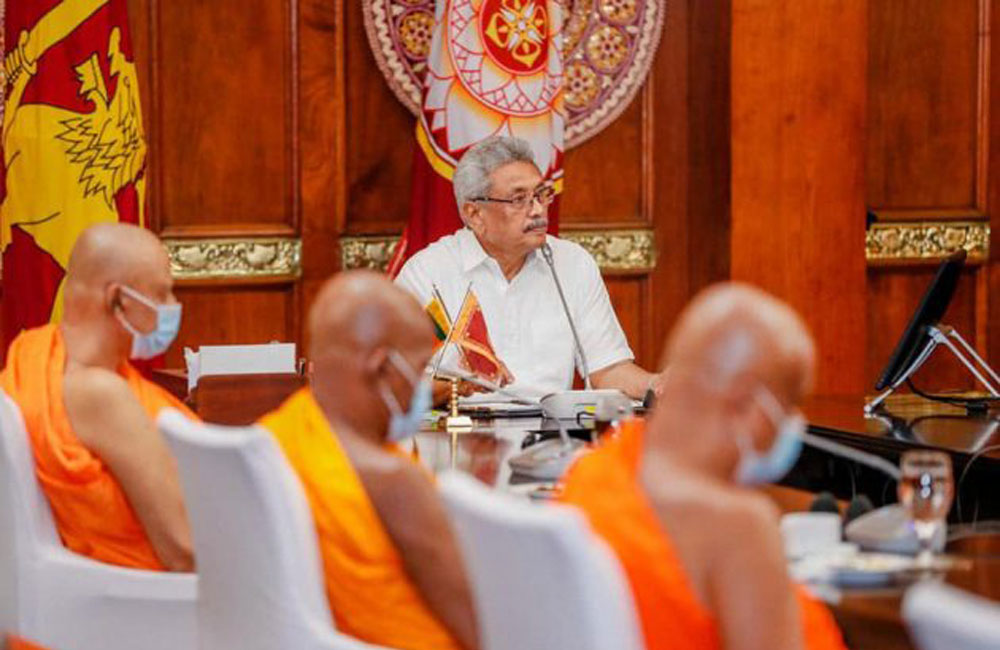
Maha Sangha concerned over the politicisation of independent commissions
Buddhist leaders of the three sects have decided to oppose the 20th Amendment to the Constitution as well as the increasing politicisation of independent commissions. The Bhikkhu Front of the National Movement for a Just Society recently requested President Gotabaya Rajapaksa to reconsider the appointments that have been made to independent commissions as many serious issues have arisen regarding certain members who have been recommended by the Parliamentary Council as members of statutory commissions.
The decision was taken at a special discussion held on Sunday (13), with the participation of a group of leading monks regarding the democratic challenges the country is facing today. The discussions also focused on possible interventions to negate such issues.
Accordingly, the following decisions were taken at the special discussion that was held with the participation of nearly 25 Buddhist leaders of the three sects representing various parts of Sri Lanka.
The participants agreed to strongly oppose the 20th Amendment to the Constitution and stressed the need to defeat the constitutional dictatorship established by it.
They also drew attention to the unprecedented deterioration with regard to discipline of Members of Parliament and emphasised that the Speaker and the respective party leaders have to bear the full responsibility of rectifying this issue without delay.
They observed that the Buddhist clergy in this country are now unable to express their views freely and voiced their resentment over the deployment of CID officers on monks who had questioned certain decisions of the government.
They also expressed their displeasure at the government's use of racism and religious bigotry to sustain political power in the country and noted the serious consequences of such actions on the society.
They also emphasised that monks have the right to freedom of expression without any fear just as any citizen has the right to freedom of expression in this country.
They pointed out that the people of the country should pay attention to the massive destruction of the environment and the destruction of ancient archeological sites which are being executed on a large scale throughout the country.
Commenting on the political witch hunt against a number of government officials including Shani Abeysekera, one of the most decorated officers of the CID, they noted that it was "disgusting" and called on the government to take immediate action to end such politically motivated endeavours.
The discussions were held in Colombo under the patronage of the Chief Incumbent of the Thissava Raja Maha Viharaya Ven. Mugunuwatawana Siddhaththa Thero, Anu Nayaka of the Amarapura sect Ven. Madampagama Assaji Thero and the Registrar of the Sri Lanka Ramanna Nikaya Ven. (Prof.) Attangane Rathanapala Thero.
Other Buddhist leaders that participated at this forum included the Chief Incumbent of the Rathvitha Raja Maha Viharaya, Ven. Mahagalkadawala Punyasara Thero, Chief Sangha Nayaka of the Kalutara district Ven. Bopitiye Dhamissara Nayake Thero, Registrar of the Polonnaruwa district and senior lecturer of the Kelaniya university Ven. (Dr) Lagumdeniye Piyarathana Nayake Thero, the Registrar of Social Development in the Ramanna Sect Ven. Karakole Piayadassi Nayake Thero, Anunayake of the Amarapura Maha Sangha Sabha Ven. Madampagama Asaaji Nayake Thero, Chief Incumbent of the Nugegoda Nalandarama Viharaya Ven. Theeniyawala Palitha Thero, Chief Sangha Nayake of the Western Province Ven. Kithalagama Hemasara Nayake Thero, Chief Incumbent of the Usgala Raja Maha Viharaya Ven. Nikaweratiye Mangalanayake Thero, Principal of Dudley Senanayake College Ven. Ulapane Sumangala Thero, Chief Incumbent of the Wathupana Raja Maha Viharaya Ven. Daliwe Narada Thero, Chief Incumbent of the Werahera Siddhaththarama Ven. Alabadagama Seelakanda Thero and Chief Incumbent of the Kusinarama Raja Maha Viharaya Ven. Kothmale Dharmapriya Thero.
Furthermore, accepting an invitation by the Buddhist leaders, former Speaker Karu Jayasuriya, SJB MPs Patali Champika Ranawaka, Tissa Attanayake, Mano Ganeshan and a number of civil society representatives including university lecturers also took part in the discussions.
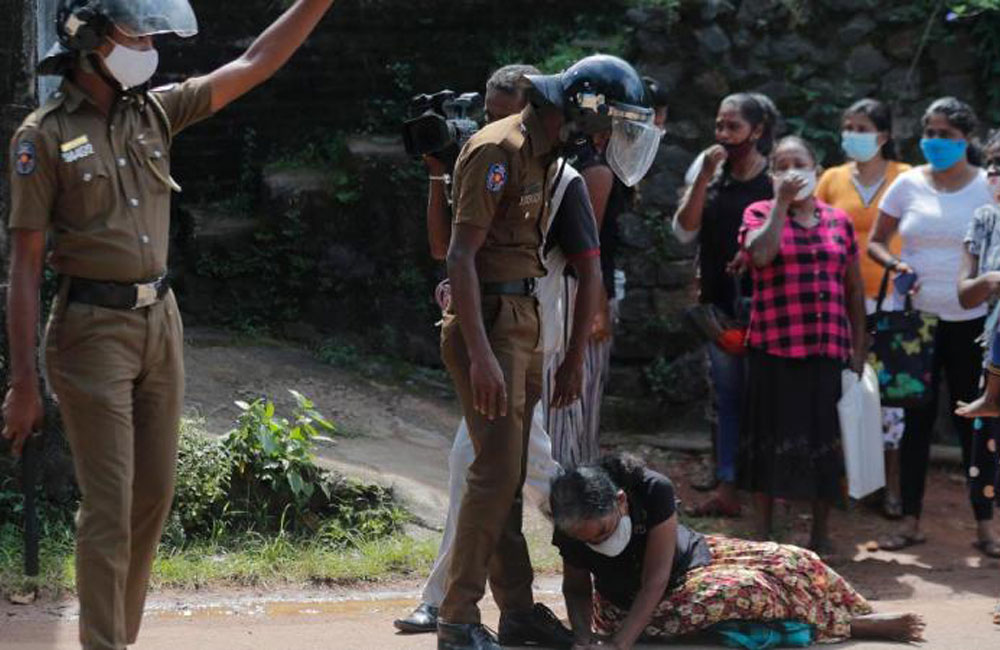
Top level Sri Lanka hospital unable to handle autopsies of virus victims
A leading hospital in Sri Lanka, where the bodies of the latest prison massacre victims were taken, does not have the facilities to conduct autopsies on bodies of people who were infected with the virus, according to the national rights watchdog.
This shocking revelation was made by the Human Rights Commission of Sri Lanka (HRCSL) in a letter to the head of the Colombo north teaching hospital urging him not to destroy bodies of those who died in the Mahara prison riot a week ago.
'Preserve the bodies'
The letter was written by the Commission at a time relatives and prison rights activists were casting doubts about claims by authorities that 9 out of 11 killed were identified as Covid 19 Victims.
While we are aware of the regulations in relation to disposal of bodies of those infected by the virus, we write to remind you that these bodies form part of an investigation that has already commenced,” wrote Ramani Muttettuwegama, Commissioner in charge of Investigations and Inquiries.
“Therefore, they should be preserved in a manner compatible with health requirements but not be cremated or destroyed in any other way until the autopsy proceedings in relation to their death is concluded. Further, where possible, external examination of the bodies such as photographs etc can be commenced and access should be provided to the forensic team for this purpose.”
She had further instructed the Hospital Director Dr. W. A. M. Shelton Perera to seek court approval to carry on the necessary investigations.
“Our inquiries reveal that although your hospital lacks the facilities for performing autopsies on bodies of people who were infected with the virus, the mortuary at the Infectious Diseases Hospital at Kotikawatte does have the required facilities and permission should be sought from the Magistrate for seeking their expertise if required.”
'They were shot' - CPRP
Earlier, HRCSL had recommended to commence forensic examination of the prison premises and hold post-mortem inquiries to understand cause of death of those who died and nature of injuries.
So far, six of the dead detainees have been identified. However, the cause of death has not been established.
They were shot to death, relatives and the Committee for the Protection of Prisoners Rights (CPPR) are convinced. Source: JDS
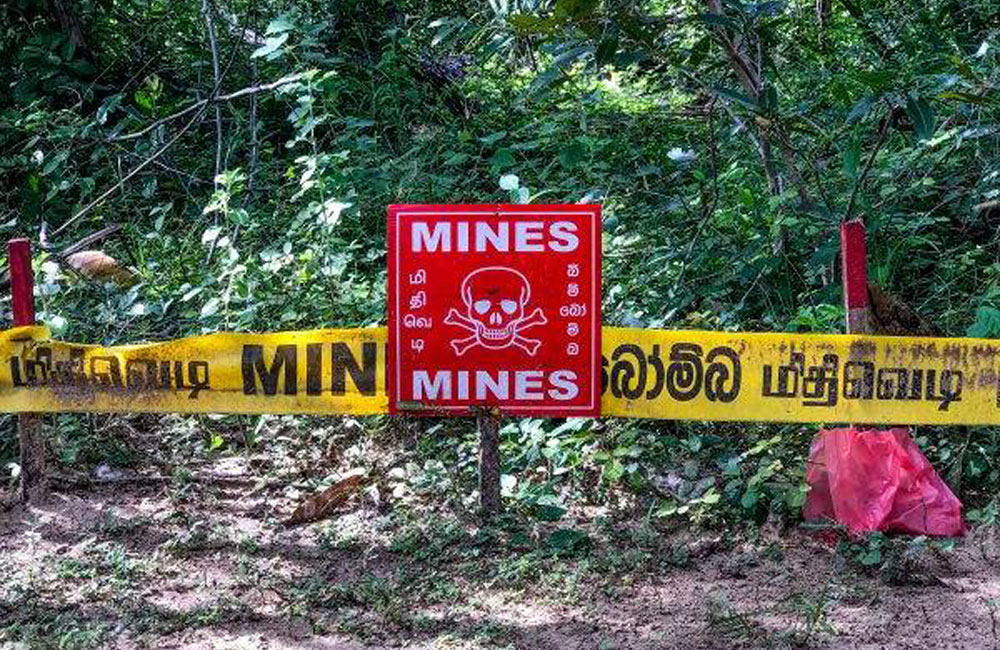
Germany increases funding for Sri Lanka's demining efforts
Germany has increased funding for demining in Sri Lanka, the German Embassy in Colombo announced.
In 2019, the German Federal Foreign Office (GFFO) provided a sum of EUR 2 million (approx. LKR 449 million) to HALO Trust towards demining activities in affected areas of the Northern Province in Sri Lanka.
The decision was taken in light of Sri Lanka’s accession to the Ottawa Anti-Personnel Mine Ban Convention with the aim of assisting Sri Lanka to achieve the target of becoming a mine-impact free country by 2020.
In addition to the funds provided last year, Germany has now allocated an additional EUR 1 million Euros (approx. LKR 224 million) to the organization as well as an extension for completion of the demining project.
Utilizing the grant by Germany, HALO has covered more than 500,000m² of land in Northern Sri Lanka since 1 January 2019. To date, the project has benefitted 7,783 people directly and 26,770 people indirectly.
Over the past 23 months, GFFO funded teams have worked across 78 minefields in Jaffna, Kilinochchi, and Mullaitivu Districts clearing their communities of the deadly legacy of war.
GFFO-funded deminers have located and destroyed 15,356 explosive items, including over 2,000 landmines, 800 items of unexploded ordnance, such as grenades and mortars and over 12,000 small arms ammunition.
This work has been achieved through the employment and training of local men and women from conflict-affected communities.
Eleanor Porritt, Programme Manager of HALO Sri Lanka stated that the renewed support from GFFO will enable the vital work to continue, bringing Sri Lanka one step closer to achieving its goal of a mine-free country.
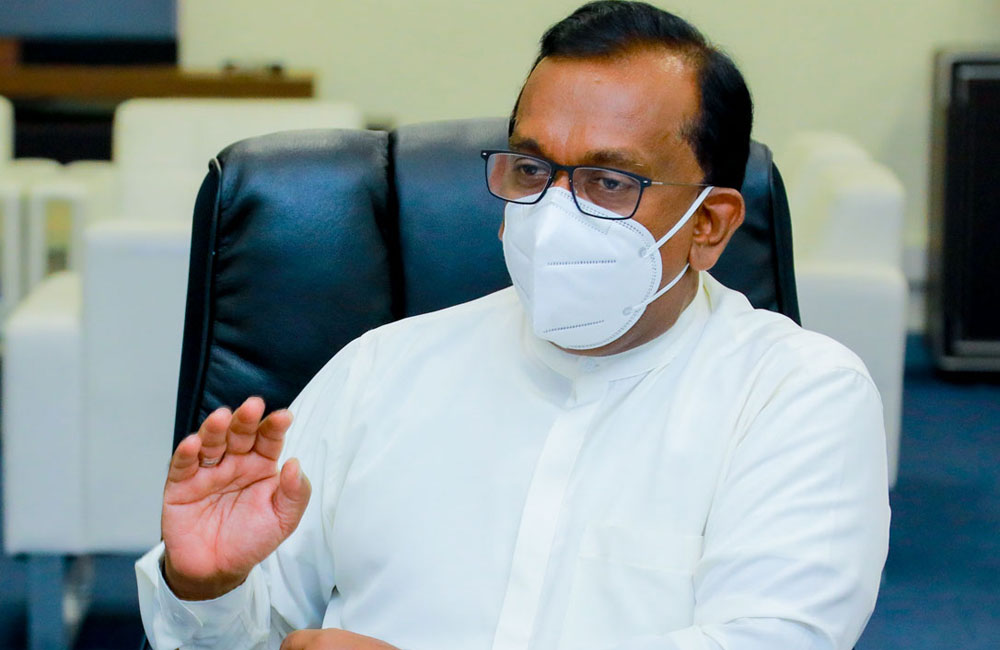
Agriculture Ministry allocates LKR 700 million for fruit exports
The Ministry of Agriculture will provide LKR 700 million for 2000 families to cultivate fruits for the export market with the aim of uplifting the economy of the poor farming community. The Ministry in a statement yesterday (11) said that they have decided to provide Rs. 500,000 per family in Nawalapitiya, Gampola, Udunuwara and Hewaheta electorates in the Kandy District through the Innovation Project implemented with the assistance of the World Bank.
The specialty here is the cultivation of these products directly for the export market.
Under the project, the farmer will be provided with highly productive plants that meet foreign market demand, drip technology and the technical knowledge and understanding required for a high quality product. Further, state-of-the-art processing centres will be set up for value addition of the harvest.
Banana, guava, pineapple and avocado fruits will be cultivated for export purposes under this project.
Representatives of the Dole Company who met the Minister of Agriculture Mahindananda Aluthgamage at the Ministry of Agriculture agreed to create a foreign market for the produce of these farmers.
Furthermore, agricultural products will be exported to the Middle East and the Philippines.
The project will also be launched in twelve more districts in Sri Lanka and work has already commenced in five districts.
The first fruit container is set to be exported in the first quarter of next year.
Page 235 of 510
